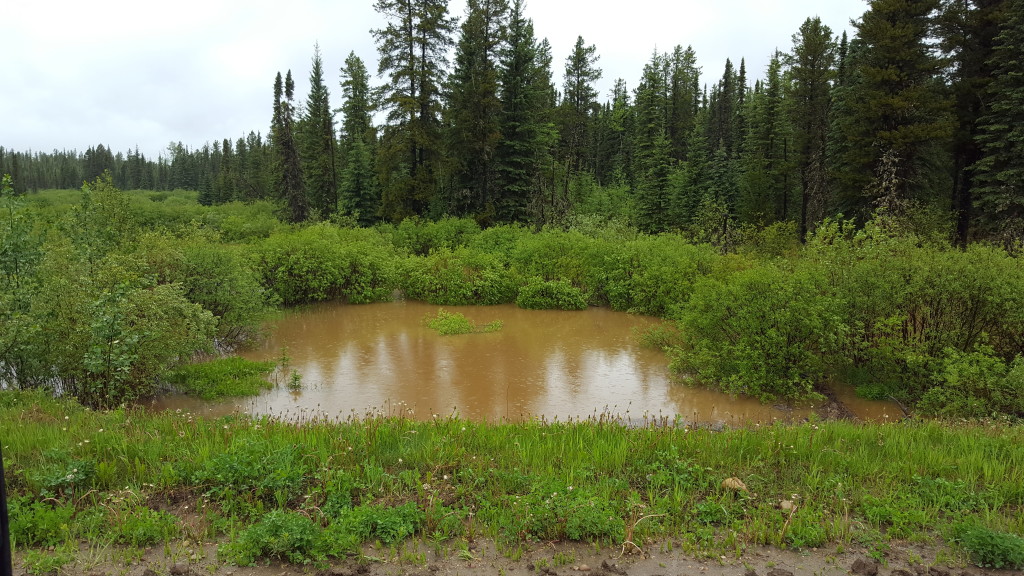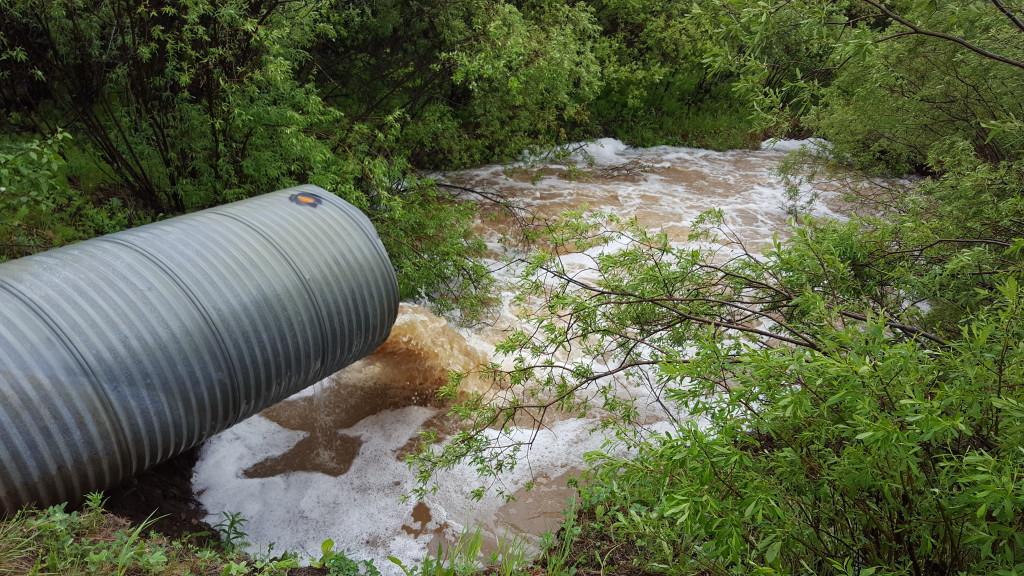A Little Rain Never Hurt Anyone… Right?
9 juin 2016 10:02 1 commentaire
Today showed just how quickly nature can work. Two days ago I inspected a road and found a bridge with a dam built a few meters downstream, backing the water level up to within 3 inches of the bridge deck. If the level rose any higher it could cause a catastrophic failure of the bridge, so this morning we went out with the appropriate permits to deal with it. We experienced heavy rainfall all night rainfall all night which had brought the water level up to the point of touching the bottom of the bridge, so with the help of a Pulaski and shovel, we managed to breach enough of the dam to lower the water level about ten inches, not a permanent solution, but enough to get us through the weekend. Our timing could not have been better because as we drove back to town, nearly every stream was experiencing flash flooding. Streams that were fine in the morning were now flowing way over capacity and in some cases reaching the crowns of the willow trees that were growing on their banks. One of our culverts along the road is scheduled for replacement this summer for being too small on a good day, but today, the inlet side was backed up to nearly the road height. What was normally a 1-2 meter wide creek channel was now a pond that spanned roughly 50 meters along the roadside.
As you can see in Figure 1, no evidence of a nice gentle creek is visible. What appear to be little shrubs are actually the crowns of willows. With the culvert inlet under about 2 meters of water, all we can do now is wait. As I mentioned before, this culvert is old and was too small to begin with and was in no way capable of handling a rainfall event on the scale of this one. To make matters worse, if you look at Figure 2, it appears to have some blockage at the inlet as well and is only flowing at about 30% capacity.
Luckily it looks as though our road will hold out through this flooding, so we should not have to deal with more than an ordinary culvert replacement.
Those familiar with culvert installations will also notice that this culvert outflow has also severely scoured out the creek channel and is now hovering over the creek, creating what is known as a hung culvert. This impedes fish travel as they cannot move further upstream than the culvert. Aside from its inability to move the required volume of water, this hung and scoured outflow is enough to require replacement. As of spring of 2015, arctic grayling became a protected species in Alberta and the small streams in this area are their homes and breeding grounds, so it is of utmost importance that they be allowed to travel up and down the streams at will. I continually hear stories from older fishermen in the area of how every stream through these hills used to be chock-full of grayling, and how now you have to hunt to find them. I would love to say that the forestry industry and the energy sector haven’t played a part in that impact, but sadly I can’t. I can however say that there has been greater awareness to fish bearing streams in the past 10 to 15 years with regulations continually getting stricter, and penalties for not following those regulations getting stricter as well. I know it will be a long hard recovery for the arctic grayling but it looks as though they are finally getting a little help from us.



1 commentaire
Enjoyed your blog, keep,up he good work